The Spiritual Element
I read with interest a recent conversation on the Enchanted Inkpot regarding religion in fantasy novels. Most of the participants in the discussion were not Christians, therefore their responses gave a broader view than often seen in these sorts of faith in fantasy discussions. Several points in particular were relevant to Christian writers of speculative fiction, which I’ll recap here for conversation purposes.
The article offered an even-handed portrayal of religion in fantasy novels and the reasons you may or may not want to include it.
Possible advantages:
• Enhance richness of setting
• Add tension to plot
• Flesh out motivations of a character
Possible disadvantages:
• May not be relevant to a particular story
• May cause controversy
• May be prevented by the author’s personal beliefs
But in the comments, things really became interesting. Several common threads cropped up:
• People enjoy creating and reading about fictional religions (often ones that blend elements of real world faiths and mythologies)
• Some have had negative experiences with religious expression in speculative fiction, namely with preachiness (specifically mentioned in connection with Christianity), Christian themes, or the portrayal of monotheistic religions as uniformly bad.
Despite the variety of opinions shared and the distaste of some for Christian themes, almost every commenter placed a value on faith and its inclusion in fantasy tales. Why? Because everyone believes something about the supernatural. That’s equally true of individuals in an invented fantasy world or a far-future civilization as it is of people in our own world. Neglecting the spiritual element doesn’t enhance the realism or decrease the preachiness of the story, rather it leaves out a significant component that shapes the attitudes and actions of characters in a given culture — and indeed, shapes the world itself.
In a discussion of imagination and world creation, CS Lewis aptly stated that “no merely physical strangeness or merely spatial distance will realize that idea of otherness which we are always trying to grasp in a story about voyaging through space: you must go into another dimension. To construct plausible and moving ‘other worlds’ you must draw on the only real ‘other world’ we know, that of the spirit.”
So whether it’s overt or subtle, there has to be reflection of something greater for a story to resonate as true. It may take the form of direct allegorical elements or a subtle symbolic thread, but in capturing some element of spiritual truth, our stories will gain impact.
Yes, Christian writers face prejudice at times. There’s an interpretation (sometimes rightfully so) of Christian works as preachy, and there certainly seems to be a more favorable view toward the depiction of fictional faiths that spring from no greater reality than the mind of their inventor, fusing together bits and pieces of mythology, legend, and obscure spiritual beliefs.
Yet rather than taking this to mean any hint of our worldview should be expunged from our works, I take it as a challenge to craft something so compelling that even those that might normally be repelled by any Christian element would want to read it. To truly engage readers, we must craft the spiritual elements of our stories with as much care as plot and character.
We may end up with stories like Tolkien’s that only reveal a spiritual framework when viewed as a whole or tales like Lewis’s that contain more obvious suppositions. Either way, the faith element should dynamically connect with the story in a way that enriches setting, enhances character, and strengthens plot, a seamless fusion without which the story would fail to function. Can you imagine Middle Earth without Gandalf? Or Narnia without Aslan? The spiritual underpinnings of these books make the stories function at their highest and best…and that’s what we should all aspire to achieve.
– – – – –
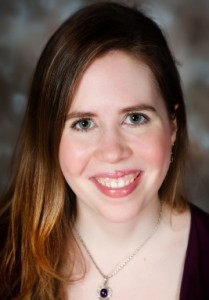 Sarah Sawyer loves creating other worlds and exploring what they can reveal about our own. Her passion for story led naturally to novel writing, and her love of the imaginative to fantasy.
Sarah Sawyer loves creating other worlds and exploring what they can reveal about our own. Her passion for story led naturally to novel writing, and her love of the imaginative to fantasy.
Sarah has served as a Carol Awards judge and a book reviewer, and she works to promote Christian speculative fiction wherever she can. She blogs on matters related to fantasy, faith, and the wonders of the everyday world at sarahsawyer.com.



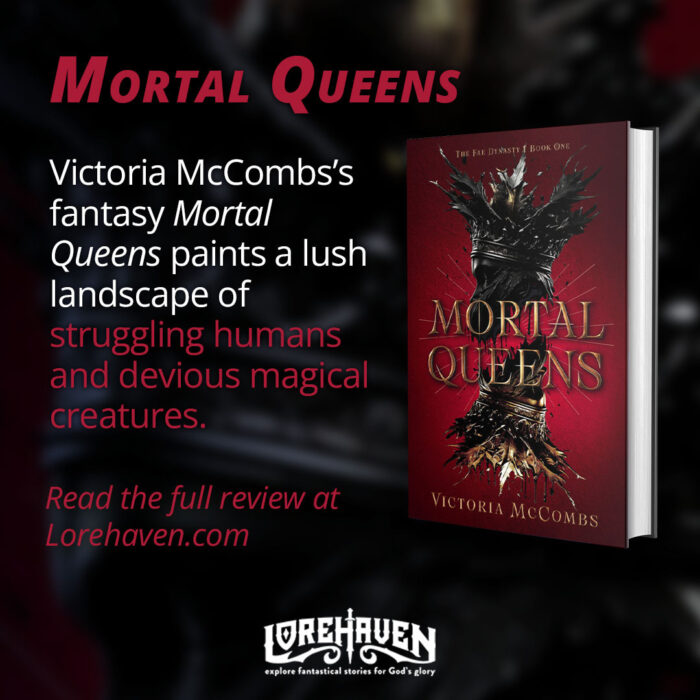





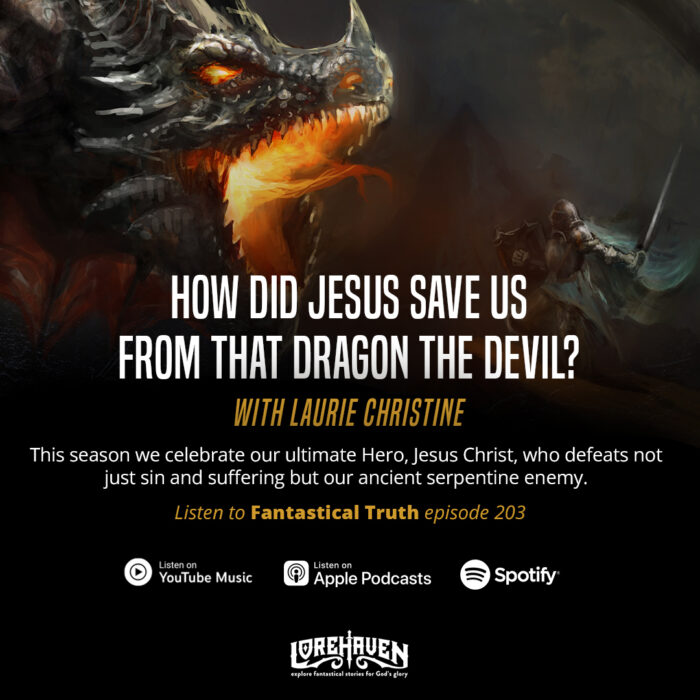



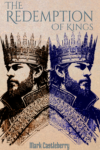



















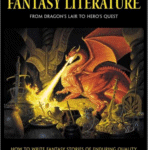





Amen. And just for the record, I’ve read plenty of “non-religious” specfic that was plenty preachy, thank-you-very-much. One’s “faith” WILL come through, even if it’s faith that people are parasites and are ruining the world or that a peaceful world can be attained through gender identity elimination rather than a faith in the God of the bible.
Esther, you are right on. Fiction from any worldview can be preachy, yet it seems that the problem of non-Christian preachiness isn’t objected to as loudly.
Oh my goodness. This is exactly the question that’s been haunting me this week! – to include or not to include overt references to Christianity in my WIP’s next rewrite. These are some good thoughts. My particular book is complicated, as it involves people from the real world, but is fantasy – sort of like the Chronicles of Narnia, except more grown-up, science-fiction, and the young people from earth are Christians. There is no Christ figure or religious symbolism, but the characters’ faith is integral to who they are and how they interact with the people from this other world. It provides a lot of the drive and motivation for what they do.
I still haven’t decided what to do. But this was very encouraging to me: “Yet rather than taking this to mean any hint of our worldview should be expunged from our works, I take it as a challenge to craft something so compelling that even those that might normally be repelled by any Christian element would want to read it. To truly engage readers, we must craft the spiritual elements of our stories with as much care as plot and character.”
Consider me inspired! 😀 Thank you, Sarah!
Bethany, I’m so glad you found inspiration! There’s certainly no one-size-fits all way to portray faith in speculative fiction. It sounds like the faith thread is vital to your story, and as you spend time hashing through how to portray it (just as we often do with a particular plot twist or character nuance), it will only grow stronger. These issues are worth grappling with, however long it takes. I wish you the best of success with your book!
On the juvenile fiction level, I really enjoy The Mistmantle Chronicles by M.I. McAllister. The author, a minister’s wife, creates a world where the ‘religion’ is not defined, but is an essential part of the character’s lives.
Interesting. I’m not familiar with the series, but I’ll go check it out. Thanks for sharing!
Thanks for a great piece, Sarah. I’ll echo Esther above and say that “preachiness” is certainly not limited to Christian fiction. Those who say otherwise are either naive to others’ propaganda, or have an agenda and simply don’t want to hear Christianity at all.
Earlier this morning I was reading a very foul-fingered but overall-right secular critic’s review of a child’s movie, which for the sake of anonymity I’ll call here by a fabricated pseudonym: Happy Feet. In a long and highly interesting tirade (for a non-Christian critic!) he doesn’t lambaste liberalism so much as say that the movie’s makers were flagrantly dishonest about its themes. Just a cute singing-penguin movie, right? Ha.
Similarly, some non-Christian readers feel snookered when you pretend like the book is only a thriller about police detectives, blah blah blah, and maybe some Questions about Faith™ like even secular books have, and then they get nothing but “preached” at in an artificial way that has little to do with the actual story. This style accepts several myths:
1. Christian content, or the Gospel, is only useful for “evangelism.” After you’ve Accepted Jesus Into Your Heart, everything makes itself clear and things get boring and aren’t worth writing stories about. The Gospel call and encouragements to live out its fruit are only for non-Christians.
2. Christian “preachiness” can only be done overtly, with Words, just like the preacher at church does. Otherwise, the other stuff is just pure-fun filler.
In effect this notion denies the fact that God Himself inspired indirect creative works pointing to Himself and His truth, in the Psalms and the parables of Christ, which aren’t as direct as direct preaching/proclamation but were never meant to be separated from the direct stuff either. It denies that every Christian is meant to reflect God in all life areas, whether direct preaching or “fun,” and accepts the very worldly notion that some areas of life are detached from God’s sovereignty.
Stephen, I’m in full agreement with you and Esther. Every storyteller has a worldview, and it always comes through, Christian or otherwise. I’d venture to say there are as many preachy works outside Christian circles as inside.
I’ve been contemplating lately why pagan religious beliefs in fantasy rarely raise people’s hackles, but sometimes the slightest hint of a Christian worldview will repel them. I recently came across this statement on the website of an award-winning fantasy author “Juliet is a member of the druid order OBOD (The Order of Bards, Ovates and Druids) and her spiritual values are often reflected in her storytelling – the human characters’ relationship with the natural world plays a significant part.” A statement like that frequently seems to intrigue people, but if you substituted Christianity in that sentence, it might very well be a turn off. There’s a great deal of offense taken at the “intolerance” of the Christian faith, and a number of people have closed their minds to what it says…or what they think it says. I agree that naivete toward the worldview elements woven into every work also plays a role. There’s probably more to it than that–an interest in beliefs that seem exotic versus mainstream, etc.
By the way, that’s a fascinating movie review quote you included. It’s nice to see that sometimes there’s a protest against other forms of preachiness–not just Christian.
Yes! I think this false divide between sacred and secular has harmed many believers, and certainly in the area of engaging with the arts. If we take our cue from Scripture, we see a wide range of God’s creativity–and we were made to create in his image.
This is key. I think oftentimes as Christian writers, we try so hard to tell The Story that we forget we’re telling a story. Our effort to force in the message squeezes all the life from it, and being a Christian is most of all about living.
Simply turning the book around is a helpful exercise. “Would I sit through 200+ pages of this?”
That’s a great question to ask. I’ve certainly picked up a number of books that I’ve ended up skimming large chunks of “preaching” that added nothing to the story. And because we’re sometimes blind to our own work and the spots we wander of on tangents that don’t support the story, it’s helpful to have eagle-eyed critique partners, preferably ones who share our vision.
Excellent post, Sarah. When I first started writing my fantasy, I had not considered that societies all have religion. Because I predicated the religious elements in my story on metaphor, I was concerned that the lack of actual religious elements would make the world seem less dense. It may — I just don’t know. Anyway, I think my next world will have a religious system of some kind.
Becky
Thanks, Becky! It’s interesting how the way we approach things as writers changes over time–and even from story to story. I don’t think the lack of actual religious elements will make your world seem less vivid and real, provided the other areas are fully fleshed out. Extended metaphor has its own power. 🙂
From Sarah:
Agreed. And their disgust can be because Christians have treated them poorly in the past, or they have a distorted view of what Christians believe. More likely, though, I think Christians too quickly assume better reasons (which do exist for some people) and neglect that deep down, and genuinely, people simply cannot stand the real Gospel. Some of them know it quite well, and even say they appreciate what Christianity has done for society (think the Norwegian mass-murder guy). But they hate Christ Himself.
I think it was in a previous column series here that I included a quote from pastor and author Kevin DeYoung, who finally phrased what I’d thought for a while in the best way I’ve seen so far. (Pause for search) Found it, quoted in the Critiquing critics of Christian fiction series, part 2. But I’ll quote more for this, from DeYoung’s original blog.
[…] The Spiritual Element Sarah Sawyer at Speculative Faith […]
I think more secular thinkers get a free pass because we have allowed them to define their own religious opinion as “neutral.” So people who believe are “religious,” and people who hold to secular opinions about religion have “no opinion.” Not having an opinion *is* an opinion on religious matters.
Moreover, I think in response to this many Christians have sought to include God or the “spiritual realm” (like Peretti) as a way of countering this. And so we merrily include characters who pray, who talk about God and walk other characters through a stiff and stilted version of the Four Spiritual Laws, and God and Angels and Demons all become characters in the book.
I think this is problematic, and for a couple of reasons. 1) It makes God a character in the story. But as soon as you do this, God ceases to be a being above the creation, and becomes jammed into the creation, dictated to at the whim of the author. It also means almost always venturing into blasphemy, since we are trying to express the Christian faith literally in literature, which is always a step away. We stick words into the mouth of God or His servants without having any idea how God would actually act in the situation, and that is always dangerous.
2) It does not come from the deep unconscious of the author’s mind, in many cases, but from the surface. We start out saying, “How can I express this or that of the Christian faith in a story form?” This makes the Christian elements “obvious” in the bad sense, designed for instruction, and fairly superficial. We hang our faith over top of our scaffold, rather than make our faith the scaffold itself. Our beliefs really ought to emerge as part of the percolation of the story itself and show up as an integral part of the story. And I think it ought to almost always be expressed symbolically, not literally, with angels and demons. As one theologian says, fantasy is itself an expression of our faith, of God and his messengers, but with the names changed to protect the innocent.
This is what Tolkien and Lewis did, and they, I think, show far more incarnational power than many “Christian” works these days. There is no religious cult in Middle Earth; none of the characters pray or worship in public houses or speak of God much at all, but it is not a secular story. Rather, the Christianity bursts forth as part of the weave of the world in which they move and live and have their being. Even Aslan is not Jesus shoved into a story. He is a Christ-figure, a Christ-metaphor, a Christ-cipher, but he is not Christ himself.
I understand that we shouldn’t put words in God’s mouth but if we realise we’re writing fiction and prayerfully consider it, I don’t think asking What If? is out of the equation. I don’t think writing about the spiritual realm is close to blasphemy. That seems a terribly unbalanced view. Yes, we should be discerning in what we read, write and view but there’s also a place for more overt Christian themes in novels. Write what the story demands. Let your faith breathe through your writing. If it’s overt, so be it, if it’s more subtle, so be it. But it musn’t be forced.
Well, looking back on it, perhaps “close to blasphemy” could have been a mite bit too strong. Certainly my own view falls closer to Tolkien’s than anyone else with regard to how to portray Christian elements in fantasy, but I should clarify that I don’t object to direct spiritual elements in works of fiction – certainly not! Heck, even Shakespeare did that. I think my primary point was that in a time when direct elements are sneered upon and put up walls in the mind of the reader, more indirect routes become necessary.
All I really intended was to suggest that we ought to make the decision to include God or real-world spiritual elements undisguised in our fiction more carefully than I have seen it done in the past. There’s so many more problems that it raises – because once you include them, you have to portray them with theological accuracy in everything, and things can get sticky. Even C. S. Lewis said The Great Divorce wasn’t an accurate portrayal of heaven and hell and angels.
Absolutely, I guess I just take issue with you lumping Frank Peretti with such practices when he never intended it to be non-fiction but rather fiction that gets us thinking. Fiction that helps us realise there’s a lot more to it than just Christians vs. non-Christians in society.
Thanks for chiming in with your thoughts, Adam. Faith in fiction isn’t a simple matter, that’s for sure.
I totally agree.
I can’t speak for other writers, but I know I include spiritual elements in my stories not as a way of countering others’ beliefs, but because they’re reflective of my own worldview. In each story, the approach I take differs (as best befits the tale).
I’m not as keen on the “angels and demons” approach, nor any that gives the unpleasant impression that the message has been shoe-horned in when it doesn’t fit the story. Yet in a contemporary story with Christians in it (to continue with the Peretti example), it would seem strange if the characters never talked about, prayed, or considered the God in whom they believe. Yes, this can be portrayed in a stilted way, but that doesn’t mean it’s wrong or blasphemous. With fantasy, we have more options, as you said, to portray things symbolically or allegory or supposition. Lewis and Tolkien certainly did this with excellence. But what about those who write in other genres? Must they omit God from their stories or else fall into blasphemy?
I don’t think that’s the case. I fall more into line with Christian’s thinking on this–exercise discernment in writing and reading, and then write about spiritual matters as befitting the individual story. I wholeheartedly agree that the spiritual element must be integral to the story, but in my opinion that doesn’t have to mean it stays in the realm of metaphor.
I don’t intend to take away anything from other writers – and I too seek to include my faith in my writing! And I withdraw my suggestion of blasphemy at including “obvious” Christian elements.
“Yet in a contemporary story with Christians in it (to continue with the Peretti example), it would seem strange if the characters never talked about, prayed, or considered the God in whom they believe.” (And sorry, the quote tab doesn’t seem to work right for me at the moment)
This certainly isn’t a problem. I think in my mind I was thinking “fantasy” as totally different world, like Middle Earth, rather than crossover or magical realism and that sort of fiction. All in my brain, of course, since high fantasy is my domain. No, in a world where a character is a Christian, it would be a bit strange not to include those sort of elements. Obviously that’s a fair use of explicit Christian elements and I’m not sneering at that sort of thing at all.
Adam, I understand where you’re coming from a lot better now, and I certainly didn’t intend to imply you leave faith out of your writing. Since I stopped by your blog, I can tell you put a great deal of thought into the theology and story–and I look forward to returning when I have more time to browse.
Also, I love high fantasy, so I can appreciate that it’s the first place your mind went.
The Juliet you refer to must be Juliet Marillier. Her work shows Druid influences, indeed. But she is also quite sympathetic to Christianity, much more than might be expected. I have posted about this subject in her work, http://sunandshield.blogspot.com/2006/01/paganism-and-christianity-in-juliet.html and http://sunandshield.blogspot.com/2006/03/paganism-and-christianity-in-juliet.html.
Thanks for your post, and for the commenter’s comments.
Martin, I was indeed referring to Juliet Marillier. I enjoyed your posts exploring the faith elements in her novels. It has been my experience that people of pagan or new age beliefs are often open to other spiritual perspectives, sometimes even synthesizing them into their own. Yet when pressed, they object to the idea of the spiritual realm acting as represented in the Bible and the notion of Jesus as the way to God. At any rate, it’s interesting to hear how she portrayed other faiths in her works, so thanks for sharing.
The one recent book that seems absent in this discussion is J. Mark Bertrand’s Back on Murder.
One of the things I think it gets *right* is that different Christians–even going to the same church–have different beliefs and different ways of living their lives. One Christian police-woman seems there to represent the many Christians who live normal, quite peaceable lives (at least when she isn’t driving), yet the main representative of Christianity is a youth pastor haunted by the fact that he may have, in preaching God’s command to believers to take up their cross and follow Him, lead a girl to her death. I think that sort of portrait of struggles and difference *within* Christianity can be a far better witness than a bland vision of God healing all our problems (as seen in recent movies such as Fireproof). For one thing, it accords with the reality that anyone can observe. For another thing, it issus Christ-like challenges to people who are already Christians, asking them how far they’re willing to go in following Jesus.
Honestly, I’m working on a similar project, which triggered my interest. I’m writing a secondary-world (kinda) fantasy, complete with medieval tropes like castles, knights, kings, queens, sorceresses–and priests, bishops, and a Pope. Generally fantasy is seen as free of actual religions (instead replacing them with invented religions), but I don’t see why that needs to be the case. Further, as a Protestant, I feel I already have one advantage–the characters have significant differences of belief with me, so I’m not quite so tempted to fold them into my own beliefs, even as I show them trying to balance the demands of following Christ with the complexities of lived life. But because no one is unambiguously always-right, I think I present a vision of Christians working in society (to be emulated or not at the reader’s discretion), rather than some preachy Christian Message (TM).
[…] A sensation of otherness. Sometimes this sensation comes from a small aspect of the world’s construction, a turn of the phrase or unique point of view that could only be held by the inhabitants of the realm in question. Yet in the large scale, I believe this often springs from capturing the spiritual element in a meaningful way, drawing on “the other world” that truly exists. For more thoughts on this aspect, see The Spiritual Element. […]